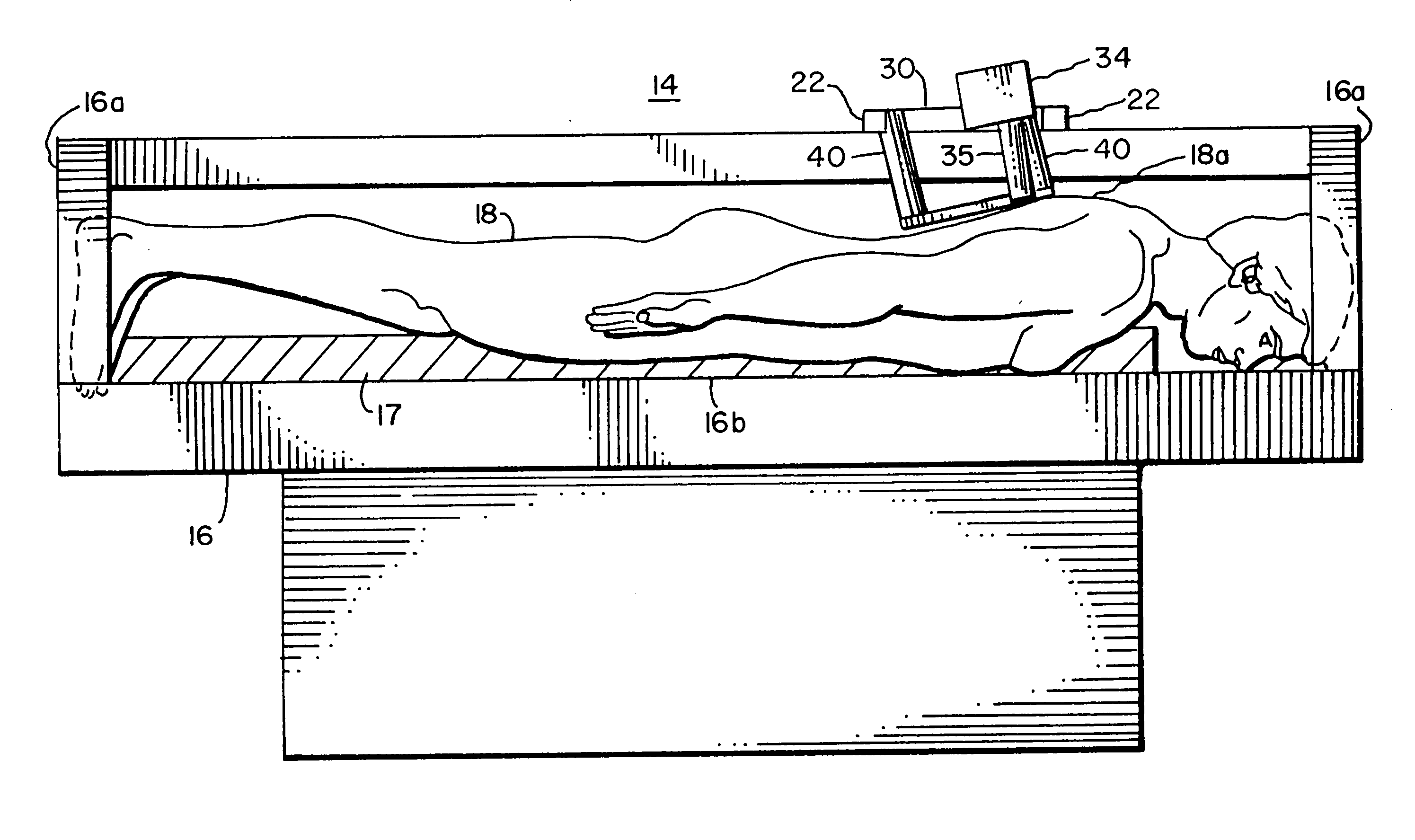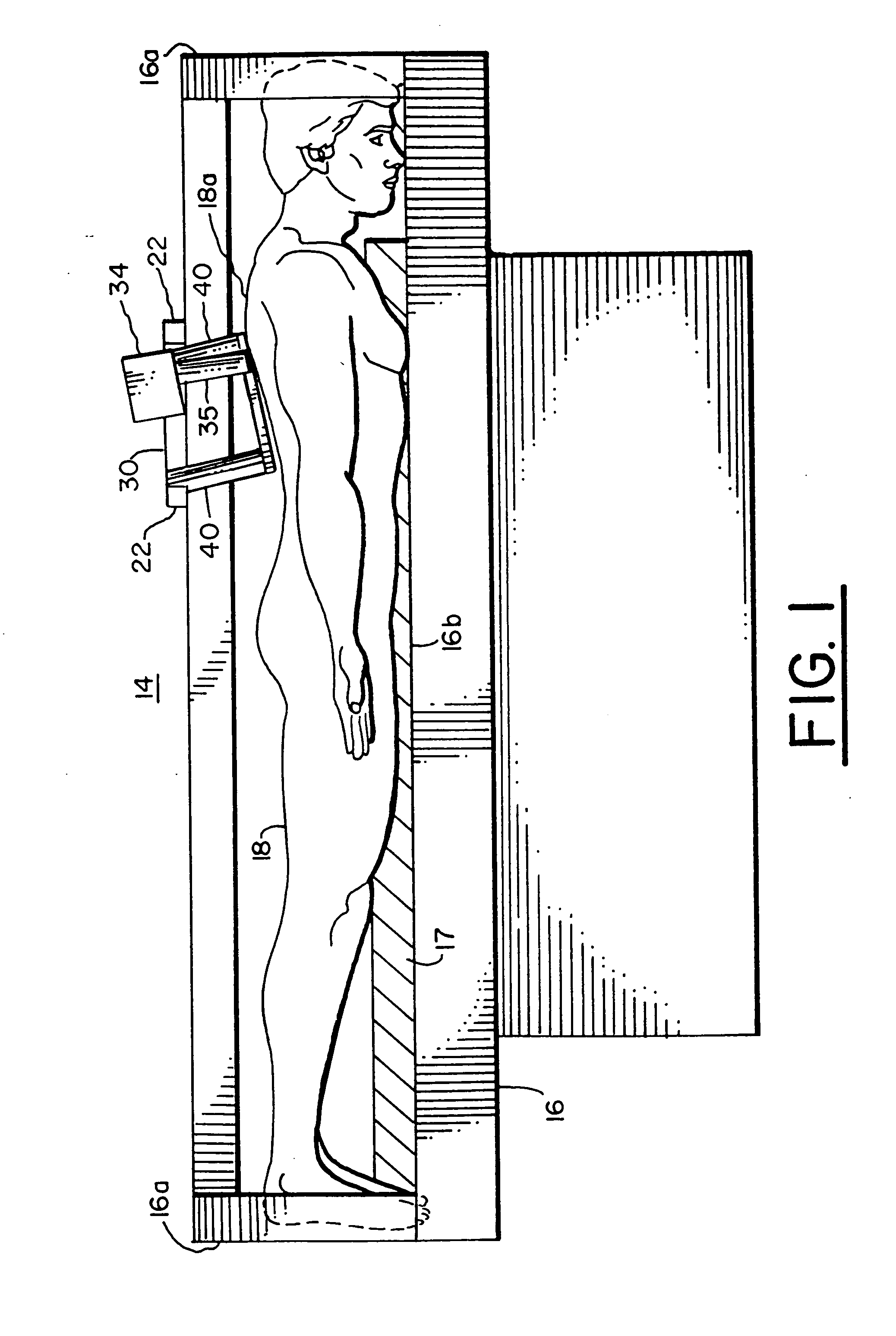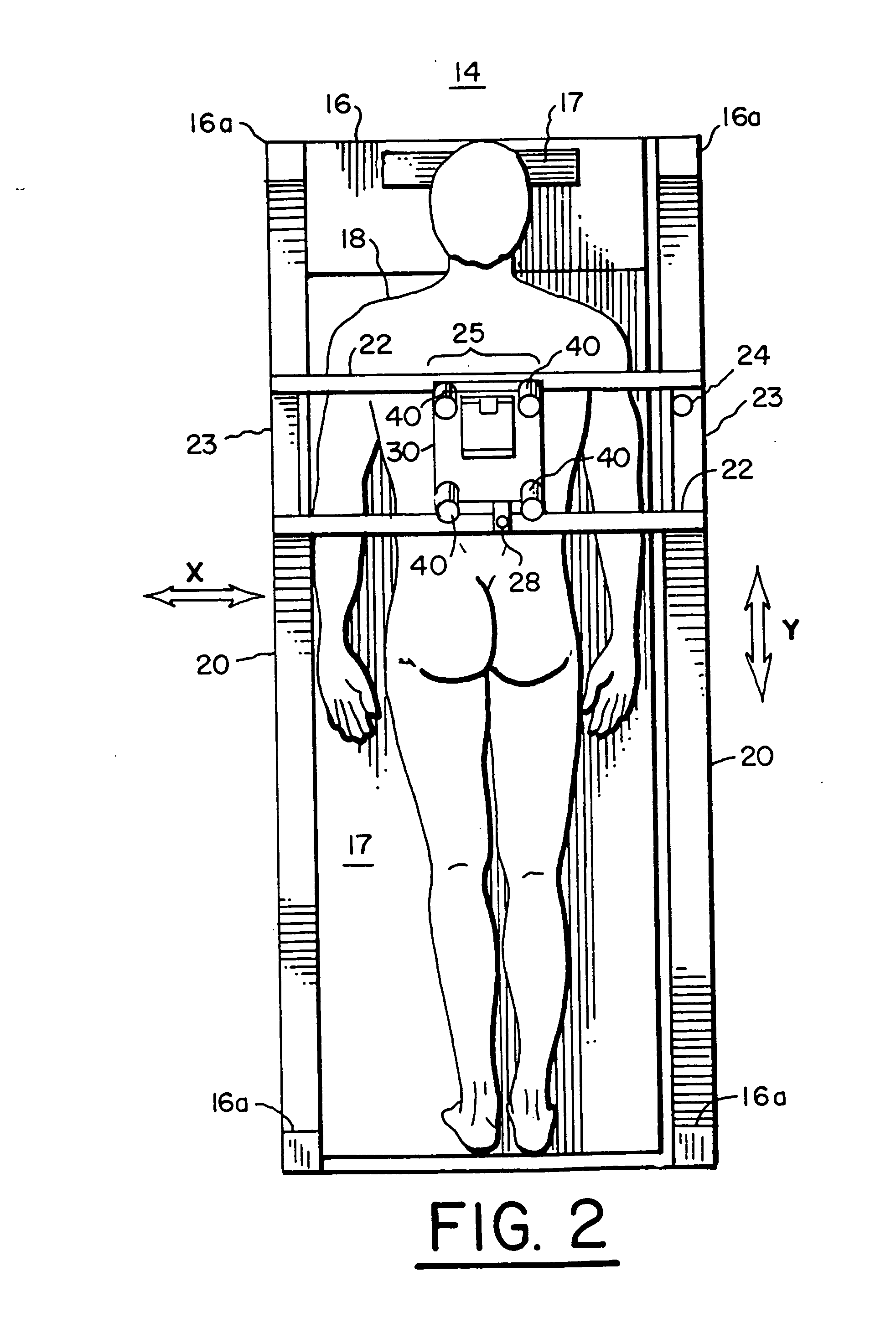System for confocal imaging within dermal tissue
a confocal imaging and dermal tissue technology, applied in the field of confocal imaging systems, can solve the problems of affecting the observation of dermal structures of interest by physicians, affecting the relative field of view of the tissue area, and limiting the optical field of view of the patient's skin tissue, so as to reduce the relative motion of the tissue, the effect of minimizing the instability of the confocal imag
- Summary
- Abstract
- Description
- Claims
- Application Information
AI Technical Summary
Benefits of technology
Problems solved by technology
Method used
Image
Examples
second embodiment
[0029] the present invention is shown in FIGS. 5-8 having a system 58. System 58 includes a brace structure 50 having a rigid lower lamination 52 which is held stationary to the skin tissue 18a of patient 18 by straps 54. Lower lamination 52 is shaped to approximate the curvature of a gross anatomical body part of the patient, such as part of the leg, torso, or arm, as shown in FIG. 5. A bottom 52a of lower lamination 52 has an opening 53, as shown in FIGS. 7 and 8. Bottom 52a defines a well 59 therein between ends 57a and sides 57b of lower lamination 52. Ends 57a and sides 57b define a rigid frame 57. Further, ends 57a and sides 57b have blind slots 55 within which an upper lamination 56 is captured. FIG. 8 shows frame 57 of lower lamination 52 in which upper lamination 56 has been removed for purposes of illustration.
[0030] Upper lamination 56 is a curved rigid sheet parallel with lower lamination 52, and has a confocal viewing window 58 (FIG. 7) substantially smaller than openin...
third embodiment
[0033] the present invention is shown in FIGS. 9-11. This embodiment is provided by a tissue stabilization system 68 which includes an attachment 69. The tissue is shown at 84 in FIGS. 10-11 as a layer of skin. Attachment 69 includes a flexible diaphragm member 70, a central circular window or plate member 72, and a semi-rigid ring 74. Diaphragm 70 is composed of deformable rubber selected to be less compliant than tissue 84. Diaphragm 70 radially extends from window 72 outward to semi-rigid ring 74. Ring 74 may be composed of hard rubber, while window 72 may be composed of a material having an optical index approximately matching tissue 84. Diaphragm 70 has between ring 74 and window 72 an annular protruding section 75 (protruding in the direction of the arrow of FIG. 10). Section 75 defines outer and inner annular cavities 76 and 78, respectively. Also, attachment 69 has a pair of vacuum lines 80 which each connects different ones of annular cavities 76 and 78 to a pneumatic pump ...
PUM
 Login to View More
Login to View More Abstract
Description
Claims
Application Information
 Login to View More
Login to View More - R&D
- Intellectual Property
- Life Sciences
- Materials
- Tech Scout
- Unparalleled Data Quality
- Higher Quality Content
- 60% Fewer Hallucinations
Browse by: Latest US Patents, China's latest patents, Technical Efficacy Thesaurus, Application Domain, Technology Topic, Popular Technical Reports.
© 2025 PatSnap. All rights reserved.Legal|Privacy policy|Modern Slavery Act Transparency Statement|Sitemap|About US| Contact US: help@patsnap.com



